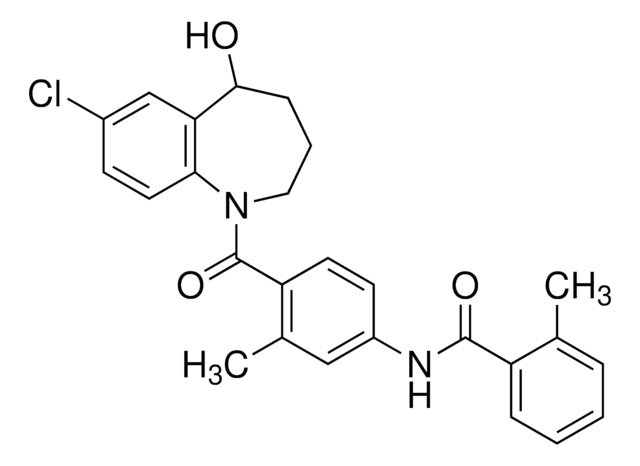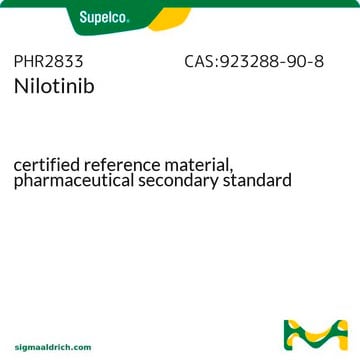A7861
Asenapine maleate
≥98% (HPLC)
Synonym(s):
(3aRS,12bRS)-5-Chloro-2-methyl-2,3,3a,12btetrahydro-1Hdibenzo[2,3:6,7]oxepino[4,5-c]pyrrole (2Z)-2-butenedioate, Org 5222, trans-5-Chloro-2,3,3a,12b-tetrahydro-2-methyl-1H-dibenz(2,3:6,7)oxepino(4,5-c)pyrrole maleate
About This Item
Recommended Products
Quality Level
Assay
≥98% (HPLC)
form
powder
color
white to off-white
solubility
H2O: ≥10 mg/mL
originator
Merck & Co., Inc., Kenilworth, NJ, U.S.
storage temp.
2-8°C
SMILES string
OC(=O)\C=C/C(O)=O.CN1C[C@H]2[C@H](C1)c3cc(Cl)ccc3Oc4ccccc24
InChI
1S/C17H16ClNO.C4H4O4/c1-19-9-14-12-4-2-3-5-16(12)20-17-7-6-11(18)8-13(17)15(14)10-19;5-3(6)1-2-4(7)8/h2-8,14-15H,9-10H2,1H3;1-2H,(H,5,6)(H,7,8)/b;2-1-/t14-,15-;/m1./s1
InChI key
GMDCDXMAFMEDAG-CHHFXETESA-N
General description
Application
Biochem/physiol Actions
Features and Benefits
Signal Word
Danger
Hazard Statements
Precautionary Statements
Hazard Classifications
Acute Tox. 3 Oral - Aquatic Acute 1 - Eye Irrit. 2 - Skin Irrit. 2 - STOT SE 3
Target Organs
Respiratory system
Storage Class Code
6.1C - Combustible acute toxic Cat.3 / toxic compounds or compounds which causing chronic effects
WGK
WGK 3
Flash Point(F)
Not applicable
Flash Point(C)
Not applicable
Choose from one of the most recent versions:
Certificates of Analysis (COA)
Don't see the Right Version?
If you require a particular version, you can look up a specific certificate by the Lot or Batch number.
Already Own This Product?
Find documentation for the products that you have recently purchased in the Document Library.
Our team of scientists has experience in all areas of research including Life Science, Material Science, Chemical Synthesis, Chromatography, Analytical and many others.
Contact Technical Service










